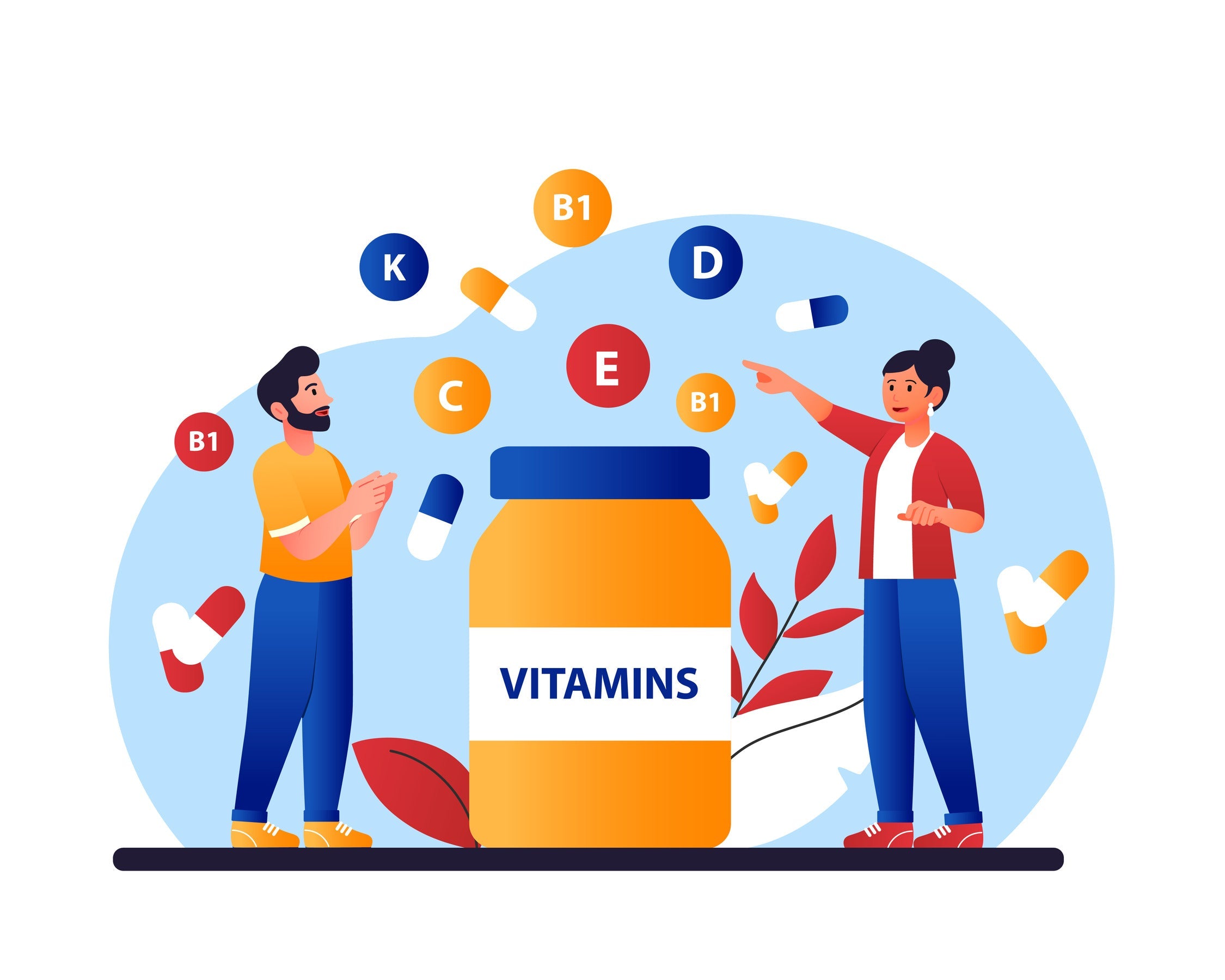
Supplement Sooner Than Later
Tell someone that you are tired and the first thing they are going to tell you is – ‘Maybe you need a supplement’. Supplements have become very common knowledge - so much so now that many of us when we experience a symptom or something unusual, we hop onto the internet, do a little research, figure out what supplement we need, and buy it from one of the many many online stores; or, if we’re too lazy, we call that one person we know who is known for being a nutrition nerd; neither of which approaches are good for you but we will condemn them later (very gently, but also scientifically) but what happens when you don’t supplement yourself with the right nutrients at early discovery of deficiencies? And how do you identify symptoms that can be connected to deficiencies? This article will answer those questions for you.
But first. Let us answer something for those who are new to the world of functional nutrition.
Why are supplements necessary?
Talk about supplements in a public forum, or perhaps at a family gathering, and there is bound to be this one person who is sure to say ‘But our ancestors did not take supplements, and they were fine’. They’re partly right and partly wrong. Sure, most of our ancestors did not need supplements as long as they had a balanced diet and lived in healthy conditions. But those who did not have a balanced diet, and those who lived in unhealthy conditions - did suffer from deficiencies, and these deficiencies were mostly managed by incorporating additional foods and herbal concoctions. It is also important to note that the world we live in has come a long way in the last hundred years alone.
The Industrial Revolution has changed the way we live, our health, and the quality of the environment around us. Soil quality, nutrient availability, air quality, water quality, environmental stressors - all of these have changed for the worse. The nutrient density of the average vegetable found in a supermarket today has 5%-40% lesser nutrients than it did 50 years ago.[1] Today, for you to get the same amount of nutrition that your grandparents got from eating a single carrot, you have to eat ten carrots, which is practically impossible; unless of course, you are Bugs Bunny or Thor.
Our lifestyles have drastically changed over the last hundred years as well. We get a lot of exposure to EMFs emanating from the plethora of devices we live amongst, but rarely any exposure to the sun. We don’t get enough movement unless and until we’re left with no choice. We don’t walk barefoot on earth ever at all. We are bombarded with stress in various aspects of our lives which results in nutrient depletion. We tend to eat the same kind of food all through the year, and not to mention all that imported produce that have invaded our refrigerators that are not local to you but are laden with pesticides and preservatives to keep them fresh till you cut them open.
Storage and transportation from produce from where it was grown to different parts of the globe decreases the nutrient content as well [2]. Processed foods laden with beautiful chemicals have invaded our pantries as well, and we cannot deny the fact that we tend to rely on them for sustenance. With this plethora of changes, our bodies have gotten deprived of several nutrients that are key to optimal functioning, thus making the case for the addition of dietary supplements.
Take the example of Magnesium. Magnesium is involved in more than 300 enzymatic reactions in our body. However, due to drastic decrease in magnesium from our food and water sources we aren’t getting enough magnesium to carry out the important steps in our body. Thus, In the 21st century no matter how healthy you eat, or how healthy of a lifestyle you practise, the possibility of your body suffering from a deficiency always exists.
What happens when you do not supplement nutrients, you are deficient in, at early discovery?
By definition, a dietary supplement (loosely called supplement) is a product intended to supplement the diet by way of providing micronutrients (such as vitamins, minerals, amino acids, enzymes, etc.) that you are unable to acquire from your standard diet. Micronutrients, although required by the body in very small quantities are essential to the functioning of several critical biological processes in the body such as creating new red blood cells, regulating blood pressure, initiating enzymatic reactions, sending nerve impulses, maintaining hormonal balance, etc.
When you are not getting enough of these micronutrients, many physiological and biological processes within the body go for a toss resulting in both physical and mental health problems. In the short term, these may manifest in the body as fatigue, dry skin, digestion issues, poor quality of hair and nails, decreased strength, anxiety, etc. When such issues pop up in your body, and you do not intervene to supplement your diet with the right set of nutrients you put yourself at risk of chronic diseases including but not limited to osteoporosis, cardiovascular diseases, certain types of cancers, metabolic disorders, and chronic depression. [3]
While modern medicine can treat many of these diseases, it only does so at the risk of reducing your overall state of health as the root cause in many cases remain undiscovered. You get prescribed a set of medicines to treat a chronic disease, only to manage its symptoms and not resolve the underlying root cause, and thus pave the way for an entirely new chronic disease; or, for your existing chronic disease to recur with an even stronger force, and you get caught in a vicious cycle of medicines to manage your symptoms – be free of symptoms for a certain time period – fall sick – develop new symptoms – back to medicines. All of this, just all of this can be prevented if you have your deficiencies identified at an early stage and address them with the right set of supplements; which is a nice segue to our next question – ‘How do you identify deficiencies and supplement them?’
How do you identify deficiencies and supplement them?
The best way to detect nutritional deficiencies is to get a blood test done. A full blood panel test can paint a full picture of what you are deficient in, and bring any undiscovered, latent issues to light. Based on the blood test, a functional medicine practitioner will then be able to tell you what supplements you need, and what is the best way to incorporate them. Working with a functional medicine practitioner is key here, as it is really important to understand the right set of supplements your body needs.
Most of us, however, do not go get that annual blood test done, unless prompted to or if there is potential cause for concern, and so we end up discovering deficiencies way too late in life. While this can still be addressed, things get easy for you if deficiencies are discovered at an early stage. When your body suffers from a lack of a certain nutrient, it manifests in some form or fashion in your body. These signs and symptoms are clear indicators of the presence of a nutrient deficiency, which can perhaps act as your personal prompt for getting that blood test done. [4] Following are some of the most common symptoms associated with a deficiency –
- Fatigue and lethargy
- Weakness
- Dry skin
- Excess hair fall
- Skin eruptions
- Digestive issues – low appetite, slow and sluggish digestion, poor bowel movements, etc.
- Brittle nails
- Poor sleep quality
- Yellowing of teeth
- White thrush on the tongue
- Irregular heartbeat
- Anxiety
- Depression
- Poor vision
While many of these symptoms such as poor sleep, dry skin, hair fall, tiredness are usually brushed off aside as ‘a temporary abnormality’, the possibility of it being a nutrient deficiency is colossal. Sure, if you are tired today because you had an exhausting day at work, it can possibly mean nothing more. But, if you are experiencing prolonged tiredness, day after day, for no practical reason that you can think of, then there is a clear indicator of a nutrient deficiency or some latent issue waiting to be discovered. Hence, it is important for you to cultivate an understanding of your own body, to be able to discern and identify an abnormality, or a symptom and bring those deficiencies to light at the earliest, and have them treated.



Leave a comment
This site is protected by hCaptcha and the hCaptcha Privacy Policy and Terms of Service apply.